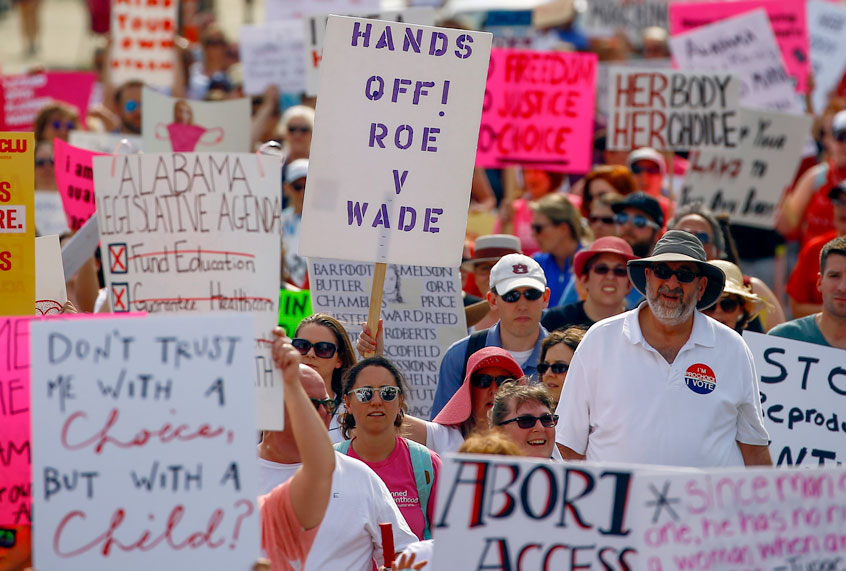National Republican talking points leaked to Vice News show that lawmakers are preparing to defend Alabama’s draconian abortion ban by arguing that it is better “physically” and “psychologically” to deny abortions to victims of rape and incest.
The document was distributed by the Republican Study Committee, a conservative caucus that includes about 70 percent of House Republicans. The memo offers “messaging guidance” on “our pro-life platform” and instructs members on how to defend Alabama’s abortion ban, which bars abortion during all stages of pregnancy unless the mother’s life is in danger. The bill makes no exemptions for victims of rape and incest. Under the law, doctors could be sentenced up to 99 years in prison for performing an abortion.
The document praises Alabama’s law as “bold new pro-life legislation” and complains that the media is “attempting to use these new developments to create ‘gotcha moments’ for Republicans and a divide within our party.”
The talking points instruct Republicans to defend the ban in cases of rape and incest by alleging that abortion is akin to “committing a second violent act” on the victim and claims that terminating a pregnancy caused by the act “could physically or psychologically wound her further.”
“Every single child should be afforded the opportunity to live, regardless of how they were conceived,” the memo says.
While some Republicans have tried to distance themselves from the Alabama law and have spoken in favor of exemptions for victims of rape and incest, the GOP has been under pressure from anti-choice groups to “reconsider” their position on such exemptions, NPR reports.
A coalition of anti-abortion groups led by Students for Life of America said in a draft letter to Republican National Committee chair Ronna Romney McDaniel that despite concerns of “issues like rape and incest,” they believe “that the value of human life is not determined by the circumstances of one’s conception or birth.”
Students for Life President Kristan Hawkins told NPR that Republicans should not be “afraid” of “talking about rape.”
Charlotte Pence, the daughter of Vice President Mike Pence, similarly penned an op-ed in the Washington Times expressing support for Alabama’s lack of exceptions for victims of rape and incest.
“Personally, I would not encourage a friend to get an abortion if she suffered the horrendous evil of rape or incest because I care about her child — and her. I do not believe abortion provides healing,” she wrote.
Pro-choice advocates say that the Alabama law as well as abortion restrictions passed in other Republican-led states show that the extremists on the right are winning over more moderate voices in the party.
Ilyse Hogue of NARAL Pro-Choice America told NPR that abortion opponents have long debated “just how hard to push to criminalize abortion, and Georgia and Alabama show that the radical fringe is winning.”
Hogue said she blamed President Trump for creating “the conditions for the hard-right turn on reproductive rights,” adding that “the fact remains that the entire anti-choice movement is dangerously out of step with the mainstream pulse of the country.”
Dr. Leana Wen, president of Planned Parenthood Action Fund, said in a statement that “any ban on access to safe, legal abortion risks women’s lives, and is an attack on our fundamental human rights.”
Planned Parenthood joined the American Civil Liberties Union in filing a lawsuit challenging Alabama’s abortion ban, which has not yet taken effect, on Friday. The lawsuit comes a week after Alabama Gov. Kay Ivey signed the bill despite admitting it was “unenforceable” since it is primarily intended to compel the Supreme Court to reconsider the landmark Roe v. Wade ruling from 1973.
“This law is blatantly unconstitutional,” ACLU Reproductive Freedom Project attorney Alexa Kolbi-Molinas said in a statement, “and the ACLU will not stand by while politicians emboldened by President Trump’s anti-abortion agenda exploit our health and our lives for political gain.”

